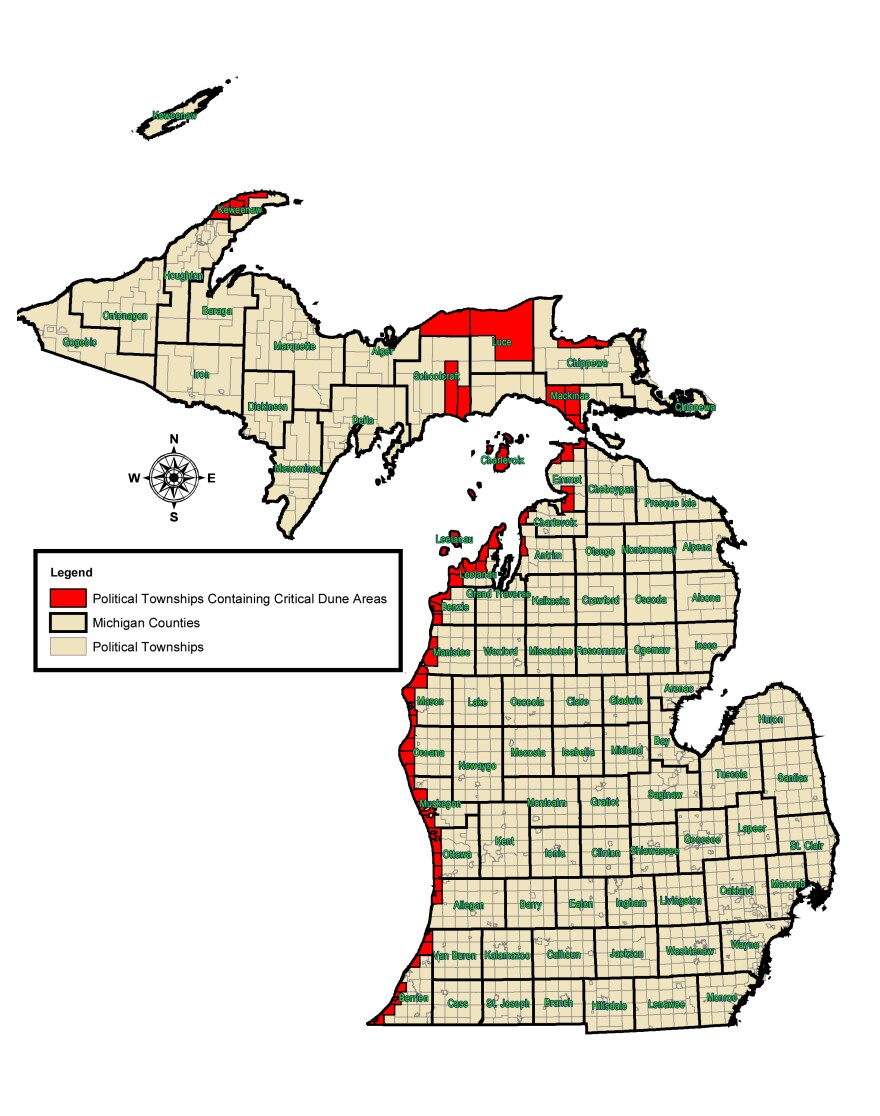The Michigan Supreme Court says a group of property owners in West Michigan will get the chance to challenge a real estate developer’s plan to build on sand dunes along Lake Michigan.
This dispute has been winding its way through the courts since 2014.
The developer is Dune Ridge. It bought 130 acres in Saugatuck. But the former church camp is located in what the state calls a critical dune area. So it’s subject to special protection and management rules to protect them.“Critical dune areas represent the tallest and most spectacular dunes along Lake Michigan's shoreline in the lower and upper peninsulas, and the shores of Lake Superior,” according to the Michigan Department of Environment, Great Lakes and Energy.
State regulators with EGLE gave Dune Ridge the permits it needed to develop the property. But a group of neighboring property owners challenged the permit and requested a hearing.
Dune Ridge then sold off slivers of its property so that those neighbors were no longer adjacent, and successfully argued to an administrative law judge that those neighbors didn’t have standing to challenge their permits.
After a series of reversals in circuit and appeals courts, the Supreme Court said the law that gave those neighbors the right to challenge a permit doesn’t include a mechanism to strip them of that right.
“The statute does not allow for forced forfeiture,” the court majority wrote in its opinion. “The requirements that [the law] imposes on a petitioner are threshold requirements for requesting a hearing, and there is no basis for imposing an additional requirement that a petitioner must maintain their original status throughout the proceedings.”
Two justices issued dissenting opinions.






